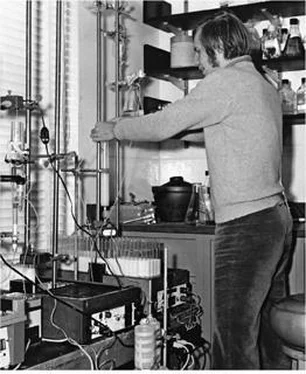James Watson - AVOID BORING PEOPLE - Lessons from a Life in Science
Здесь есть возможность читать онлайн «James Watson - AVOID BORING PEOPLE - Lessons from a Life in Science» весь текст электронной книги совершенно бесплатно (целиком полную версию без сокращений). В некоторых случаях можно слушать аудио, скачать через торрент в формате fb2 и присутствует краткое содержание. Жанр: Биографии и Мемуары. Описание произведения, (предисловие) а так же отзывы посетителей доступны на портале библиотеки ЛибКат.
- Название:AVOID BORING PEOPLE: Lessons from a Life in Science
- Автор:
- Жанр:
- Год:неизвестен
- ISBN:нет данных
- Рейтинг книги:5 / 5. Голосов: 1
-
Избранное:Добавить в избранное
- Отзывы:
-
Ваша оценка:
- 100
- 1
- 2
- 3
- 4
- 5
AVOID BORING PEOPLE: Lessons from a Life in Science: краткое содержание, описание и аннотация
Предлагаем к чтению аннотацию, описание, краткое содержание или предисловие (зависит от того, что написал сам автор книги «AVOID BORING PEOPLE: Lessons from a Life in Science»). Если вы не нашли необходимую информацию о книге — напишите в комментариях, мы постараемся отыскать её.
AVOID BORING PEOPLE: Lessons from a Life in Science — читать онлайн бесплатно полную книгу (весь текст) целиком
Ниже представлен текст книги, разбитый по страницам. Система сохранения места последней прочитанной страницы, позволяет с удобством читать онлайн бесплатно книгу «AVOID BORING PEOPLE: Lessons from a Life in Science», без необходимости каждый раз заново искать на чём Вы остановились. Поставьте закладку, и сможете в любой момент перейти на страницу, на которой закончили чтение.
Интервал:
Закладка:
The next day in his office, Max told me not to despair of my unexciting results. Instead I should consider myself lucky not to be in Renato's shoes, forced into an emotionally consuming photoreactivation rat race irrelevant to the much more important question of how genetic information is copied. Now was the time for me to concentrate on learning to do science as opposed to winning an experimental race whose outcome would surely be only marginally significant a decade later. George Beadle also reassured me that I was not off course. To my surprise, he had popped in to hear my seminar and, soon afterward, invited me to dinner at his modest home nearby. Like Max, he was no longer doing experiments, instead getting his scientific kicks from walking about the Kerchoff labs to see what the younger graduate students and postdocs were up to. Already he was justly famous for work at Stanford using the mold Neurospora to find genes coding for metabolic pathway enzymes. At forty-five, he didn't see himself making another such conceptual advance.

On the lookout for girls in Corona del Mar, California
In early August the Berkeley bacteriologist Roger Stanier gave a seminar on bacterial metabolism. Roger was still a bachelor, and his presence led to the arrival several days later of the Hopkins Marine Station graduate student Barbara Wright. Failing to attract Roger's notice, she caught the eye of Wolf Weidel, who asked her to join him, Günther Stent, and a Biology Department secretary for a camping weekend on Catalina Island. After Gunther's date vamoosed in favor of a reconciliation with her husband, I was asked to go along out of pity for my being otherwise condemned to another weekend of Pasadena desolation. All went well until the four of us got off the boat at Avalon, the only town, and learned that camping was forbidden. Believing it a ruse to make us rent hotel rooms, we walked toward the
island's opposite side hoping to find there a secluded beach on which to roll out our sleeping bags.On an increasingly blistering afternoon, we realized too late that only goats had ever walked our path snaking down a cliff face to the ocean several hundred feet below. Neither Günther nor Wolf initially wanted to seem cowardly in front of Barbara, while I awkwardly declared I was going back alone. But after a few more steps downward, the others agreed to turn back. Then, without warning, Gunther's backpack, momentarily off his shoulders, rolled down the steep incline to the beach below. Faced with the prospect of spending real money to replace the bag and its contents, Günther and Wolf again inched downward, reaching the ocean some twenty minutes later. Soon, however, they found it impossible to retrace their steps. After an hour passed with them out of sight searching for alternative upward paths, Barbara and I saw no option but to go back to town.
It was already dusk as we went back along the route we had taken, our bare legs constantly assaulted by spines from the prickly pears that, along with the goats, were the island's principal inhabitants. In town, I anticipated renting rooms so we could shower. But to save money, Barbara insisted that we go back to just beyond the outskirts, where we found a large vacant field to plop down our sleeping bags. There at dawn we were arrested for camping out on the golf course. Later, back at the police station, by saying we were pelican-seeking biologists, I got the police chief to help mount an apparently futile rescue mission for Günther and Wolf above the cliffs in his Jeep. Returning empty-handed to town, we soon happily spotted Günther and Wolf near the boat dock. After sunrise they had found a chimney-like indentation in the cliff face that let them squirm upward until they reached a spot from which they could scramble to safety. They were still shaking, knowing they had put their lives at great risk. By then I had lost my reading glasses. Günther was even more annoyed that neither Barbara nor I had spotted the expensive camera he'd left behind in his pursuit of his backpack. And so no pictures of our weekend misadventure survive.
Soon after my early September return to Bloomington, Luria asked me to give a bacteriology seminar in which I talked about Seymour
Cohen's experiments at Penn showing that phage-infected bacteria synthesized no bacteria-specific molecules, but instead phage-specific DNA and protein. How to go beyond these neat results of Seymour's was not at all clear. No chemist had yet mastered the basic chemistry of either proteins or of the two nucleic acids DNA and RNA. Even Linus Pauling remained then mostly in the dark. Though with great anticipation I went to IU's chemistry auditorium to hear him give the fall Sigma Xi lecture, his talk was about the structure of antibodies as opposed to that of the gene.I wanted to move on as a postdoc to a lab where I could learn nucleic acid chemistry. But no obvious place suggested itself during a late October evening meal with Salva and Zella. Resolution did not come until just before Christmas, during the second of that fall's Szilard-sponsored Chicago get-togethers. By then Joshua Lederberg was part of our in-group, with his first appearance given over to a four-hour monologue on perplexing bacterial genetic results from his University of Wisconsin lab. To the second gathering also came the biochemist Herman Kalckar, now back in his native Denmark after spending the war years mainly in St. Louis. A participant in Max's first phage course, Herman professed the desire to use some of his rare, recently synthesized radioactive adenine to study phage replication. So both Max and Salva quickly urged me to move on to Kalckar's lab, located in Copenhagen, not far from Niels Bohr's institute and the intellectual tradition that had spawned Max's first interest in biology. Happily, Kalckar instantly said he would accept me, and I promptly applied for postdoctoral fellowships that would allow me to move to Copenhagen.
At the same time I was repeating many previous key experiments of my thesis to reassure Salva that its conclusions, though not earth-shattering, were at least solid. This task was over by the end of February, allowing me to complete a first draft for my thesis before I flew to New York in mid-March to be seen by the selection committee for National Research Council postdoctoral fellowships. Though the bumpy flight made me awfully airsick, the interview went well and in less than two weeks I was awarded a prestigious two-year Merck fellowship. I had expected my coming summer to be spent in Oak Ridge
with Gus Doerman, who had recently moved to the big Atomic Energy Commission biology lab there. But in early May, Gus told me his attempt to get me a security clearance had failed: my association with the left-wing Luria made me a risk. In the summer of 1948, a Cold Spring Harbor-sited FBI informant had attended the Wallace-for-president fund-raising corn party in Jones Lab to which virtually all the Cold Spring Harbor community, myself included, not so earnestly went. Max came to my rescue, asking me back to Caltech for June and July before I joined him in Cold Spring Harbor for the August phage meeting. By then, Salva had virtually rewritten my thesis, making my late May thesis exam mainly perfunctory.Only in my last year at Indiana did I have a real girlfriend. She was a perky, dark-haired fellow graduate student in the Zoology Department, Marion Drasher. In early December, I took her to a local production of J. B. Priestley's play An Inspector Calls. Soon I was intensely in love, particularly after Christmas of 1949, when we were in New York City together with several other Bloomington students for the big annual AAAS meeting. At the beginning she was the reluctant one, citing her several years’ advantage in age. Our relative roles slowly reversed upon our return to Bloomington, however, with me increasingly resistant to making long-term plans together. I was after all anticipating my trip to Copenhagen within six months, and in no sense wanted to be tied down. How to go back to just being friends eluded both of us, and when we parted in June I felt bad about being so emotionally inconsistent.
Читать дальшеИнтервал:
Закладка:
Похожие книги на «AVOID BORING PEOPLE: Lessons from a Life in Science»
Представляем Вашему вниманию похожие книги на «AVOID BORING PEOPLE: Lessons from a Life in Science» списком для выбора. Мы отобрали схожую по названию и смыслу литературу в надежде предоставить читателям больше вариантов отыскать новые, интересные, ещё непрочитанные произведения.
Обсуждение, отзывы о книге «AVOID BORING PEOPLE: Lessons from a Life in Science» и просто собственные мнения читателей. Оставьте ваши комментарии, напишите, что Вы думаете о произведении, его смысле или главных героях. Укажите что конкретно понравилось, а что нет, и почему Вы так считаете.












